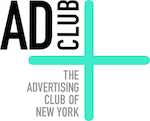Awards shows must spur the evolution of creativity

By Gina Grillo
Originally Posted on Campaign US.
The CEO of the Advertising Club and the ANDY Awards responds to DDB’s plan to cut back on awards submissions in 2016
Last week, Campaign US published a piece titled “The End of False Recognitions” by DDB’s Amir Kassaei, which bravely posits that the award industry has agencies putting their integrity on the line for the sake of winning trophies. Agree or disagree, the stage has been set for a frank discussion around why awards shows hold such an important position in advertising and how they can better use their power to propel the industry forward.
At the helm of a 120-year-old industry organization and awards show that was built by and for the world’s best creatives, I will always defend the importance of recognizing the people and craft that make our industry uniquely great; but I’m also acutely aware of where shows can veer off course. Awards shows have the power to be the strongest possible catalysts for spurring the evolution of creativity, and it is our responsibility as a group of organizations to uphold that standard. We must use our birds-eye-view of this industry and position of honor as an opportunity to empower marketers and agencies to be brave, ultimately advancing how creativity takes shape and its possibility to do good and inspire. This is a sacred responsibility. It’s very possible that awards shows are needed now more than ever, but how do we ensure the purity of our collective process?
The first and most important objective of any awards show should be to give back, with a system of checks and balances set in place to ensure that profit is never the end goal. We should be the instigators of a virtuous cycle of recognition for great, creative work and also forward-driving investment, propelling our peers to aim higher and tackle new challenges. On behalf of the entire industry, awards shows should reinvest their proceeds in leadership development; attraction and retention of young talent; and programs that offer new ways to nurture creativity as other industries compete for our great minds.
We must support the development of programs that protect the craft in the long-term, especially as it faces constant threats from converging industries, tight budgets, and the loss of the human element through technology and data’s influence. We have the power to show our industry how to work with these factors, overcoming barriers through tangible action.
We must also arm our juries with brave, world-class industry leaders and experts — visionaries with the utmost respect of their peers, who feed the positive cycle of what game-changing creative can do for a brand, economy or a cause. It’s a jury’s commitment to recognize impactful and brave ideas that will continue to raise the current standard of craftsmanship, inspiring burgeoning talent beneath them to strive for greatness themselves and setting the bar high for what it means to produce great work.
This means showcasing and honoring bold, collaborative ideas that make other creatives leave the room wondering why they hadn’t thought of that idea themselves. It also means recognizing and championing the sometimes arduous and painful journey required to bring an idea to life. We must nurture creatives and demonstrate to them that we understand and appreciate their efforts, inspiring them to commiserate and share creative war stories. Knowledge sharing is instrumental to innovation. We play a fundamental role to this idea pollination as a natural place to connect and converse.
Finally, just as the industry itself faces the challenge of adapting to new business norms and technologies, so too must awards shows evolve to keep pace with this industry transformation. Whether through the selection of jurors outside of the industry, new measurements of creativity or revamping show production, we must commit to new ideas that will help us continue to celebrate great work.
When industry awards do what they are supposed to, they give us new measure of what creativity can do, show respect for our peers and give us a way to propel fresh talent into the spotlight. Competition – better yet, honest competition – is a time-tested means of ensuring that ethical and meaningful progress is made. They serve as a way to lift up not just the people who win them, but the industry as a whole. But they need to come from the right place. We hope that this honest conversation continues – we encourage people to speak out about their concerns for the industry, in the true spirit of brave collaboration.
Gina Grillo is president and CEO of The Advertising Club of New York and the International ANDY Awards.
